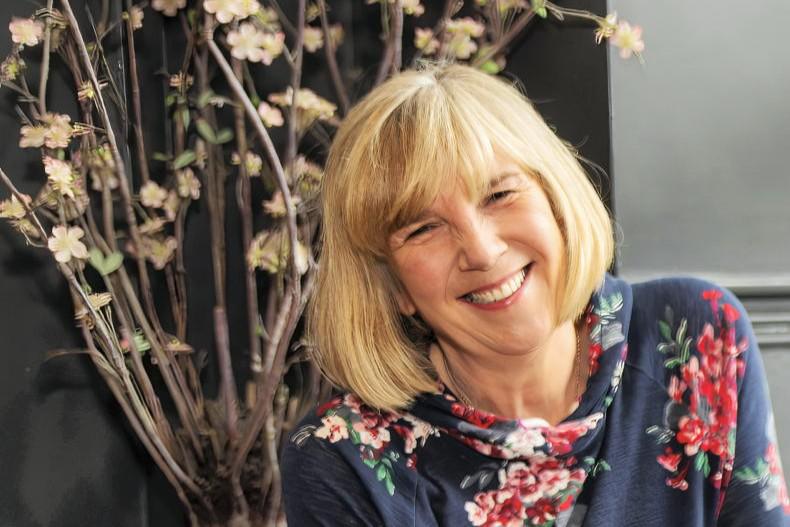In an effort to keep fit and healthy, of late I have been walking each morning for an hour before going to work. I started this ritual on Brigid’s Day with the intention of making it a habit and that is exactly what it has become. I spring out of bed and my heart is pounding with the anticipation of the fresh air, birdsong, the glimpse of the little rabbits by the ditches and the opportunity to clear the head of the usual everyday worries and stresses. When I started my walks, I was coming home in the dark. As time has moved on, the startling red hues of the rising sun have welcomed me home and now as we land on the equinox, it is the clear morning light that envelops me.
This weekend the clocks go forward, heralding summertime and, for everyone in Ireland, the best half of the year, with the promise of sunlight and warmth. It is interesting to contemplate what life must have been like in a time when there were no mechanical devices for marking and telling the time, before the popularisation of clocks and watches or the church bells to announce the hours. How was time understood and perceived before it became the regulated, and might I say, master to which we are now all enslaved?
Cock-crow
In the mornings, most of us wake to the annoying ringing or buzzing of the alarm clock – and more often than not, depressing news on the radio – and pull ourselves out of bed. In the distant past, it was the sunlight that punctuated the morning with the sweet singing and chirping of the dawn chorus. On the farms it was the loud crowing of the cock – cock-crow – that announced the day, and this was in perfect harmony with the seasons: it coming late in the winter and early in the summer when work had to be done. Some people kept the cock in the house as a living alarm clock.
At night, people perceived time by the different “clusters of stars” and constellations and their arrival over the horizon at different times of the year
Any time from Christmas to Brigid’s Day, the measure of the daylight increasing was governed by coiscéim coiligh, “the length of a cock’s step on the dunghill”, which was taken to be a very small increment indeed. The cock would climb to the highest point of the dung heap and, while preening himself, would raise one foot and place it down again in almost the exact same spot. As small as this tiny measure was, it was enough to satisfy people that the light and the weather were improving and the increase was manifest. As we moved on towards the equinox, the exponential increase was captured by the phrase “by a cock’s step on Brigid’s Day and a hare’s leap on Paddy’s Day”.
Sundials and moonlight
It was the case too, that time was registered by the sun, its position in the sky and where it rose in the morning and sank at night. Despite a dearth of sunshine, Ireland boasts some incredible sundials, with one in the passage tomb in Knowth, Co Meath dating back 5000 years and rightfully considered the oldest in the world. There are many dating to the early Christian period, but at a local vernacular level it is evident that the casting of shadows from trees or buildings and their respective lengths would have allowed a relative register of time and how it was changing.
At night, people perceived time by the different “clusters of stars” and constellations and their arrival over the horizon at different times of the year. Add to that the close observation of the 30-day cycle of the moon, from its waxing increase through the full moon to its waning decrease and its days of darkness. We forget that it is from the moon that we get the concept of the month and the fortnight.
The year itself, as an integer of time, was often equally vague. Most people born in the early 19th century in Ireland, when official church and civil records were inconsistent, had no recollection or idea of their actual age.
The lovely old phrase “the man who made time, made plenty of it” has been usurped by the way that our civilisation and culture has encased time by marking it and dividing it. Regulated, chronometric time has become the straitjacket restricting our natural and instinctive responses to nature and our environment, and constantly places us in a state of stress. Sure, without it there would be chaos and we would be more stressed, yet our calendar deadlines, the obligations of timetables and the numerous meetings in our diaries have segmented time and imposed a perspective of a kind of standardised life.
Was there ever a time when people awoke naturally from a night’s sleep, ate when they were hungry, filled their days with chat and everyday tasks and had the freedom to bask in the timeless wonder of pure existence?
Shane Lehane is a folklorist who works in UCC and Cork College of FET, Tramore Road Campus. Contact: shane.lehane@csn.ie
Read more
Folklore: the Stócach at Shrove
Folklore with Shane Lehane: knotted in love
In an effort to keep fit and healthy, of late I have been walking each morning for an hour before going to work. I started this ritual on Brigid’s Day with the intention of making it a habit and that is exactly what it has become. I spring out of bed and my heart is pounding with the anticipation of the fresh air, birdsong, the glimpse of the little rabbits by the ditches and the opportunity to clear the head of the usual everyday worries and stresses. When I started my walks, I was coming home in the dark. As time has moved on, the startling red hues of the rising sun have welcomed me home and now as we land on the equinox, it is the clear morning light that envelops me.
This weekend the clocks go forward, heralding summertime and, for everyone in Ireland, the best half of the year, with the promise of sunlight and warmth. It is interesting to contemplate what life must have been like in a time when there were no mechanical devices for marking and telling the time, before the popularisation of clocks and watches or the church bells to announce the hours. How was time understood and perceived before it became the regulated, and might I say, master to which we are now all enslaved?
Cock-crow
In the mornings, most of us wake to the annoying ringing or buzzing of the alarm clock – and more often than not, depressing news on the radio – and pull ourselves out of bed. In the distant past, it was the sunlight that punctuated the morning with the sweet singing and chirping of the dawn chorus. On the farms it was the loud crowing of the cock – cock-crow – that announced the day, and this was in perfect harmony with the seasons: it coming late in the winter and early in the summer when work had to be done. Some people kept the cock in the house as a living alarm clock.
At night, people perceived time by the different “clusters of stars” and constellations and their arrival over the horizon at different times of the year
Any time from Christmas to Brigid’s Day, the measure of the daylight increasing was governed by coiscéim coiligh, “the length of a cock’s step on the dunghill”, which was taken to be a very small increment indeed. The cock would climb to the highest point of the dung heap and, while preening himself, would raise one foot and place it down again in almost the exact same spot. As small as this tiny measure was, it was enough to satisfy people that the light and the weather were improving and the increase was manifest. As we moved on towards the equinox, the exponential increase was captured by the phrase “by a cock’s step on Brigid’s Day and a hare’s leap on Paddy’s Day”.
Sundials and moonlight
It was the case too, that time was registered by the sun, its position in the sky and where it rose in the morning and sank at night. Despite a dearth of sunshine, Ireland boasts some incredible sundials, with one in the passage tomb in Knowth, Co Meath dating back 5000 years and rightfully considered the oldest in the world. There are many dating to the early Christian period, but at a local vernacular level it is evident that the casting of shadows from trees or buildings and their respective lengths would have allowed a relative register of time and how it was changing.
At night, people perceived time by the different “clusters of stars” and constellations and their arrival over the horizon at different times of the year. Add to that the close observation of the 30-day cycle of the moon, from its waxing increase through the full moon to its waning decrease and its days of darkness. We forget that it is from the moon that we get the concept of the month and the fortnight.
The year itself, as an integer of time, was often equally vague. Most people born in the early 19th century in Ireland, when official church and civil records were inconsistent, had no recollection or idea of their actual age.
The lovely old phrase “the man who made time, made plenty of it” has been usurped by the way that our civilisation and culture has encased time by marking it and dividing it. Regulated, chronometric time has become the straitjacket restricting our natural and instinctive responses to nature and our environment, and constantly places us in a state of stress. Sure, without it there would be chaos and we would be more stressed, yet our calendar deadlines, the obligations of timetables and the numerous meetings in our diaries have segmented time and imposed a perspective of a kind of standardised life.
Was there ever a time when people awoke naturally from a night’s sleep, ate when they were hungry, filled their days with chat and everyday tasks and had the freedom to bask in the timeless wonder of pure existence?
Shane Lehane is a folklorist who works in UCC and Cork College of FET, Tramore Road Campus. Contact: shane.lehane@csn.ie
Read more
Folklore: the Stócach at Shrove
Folklore with Shane Lehane: knotted in love









SHARING OPTIONS